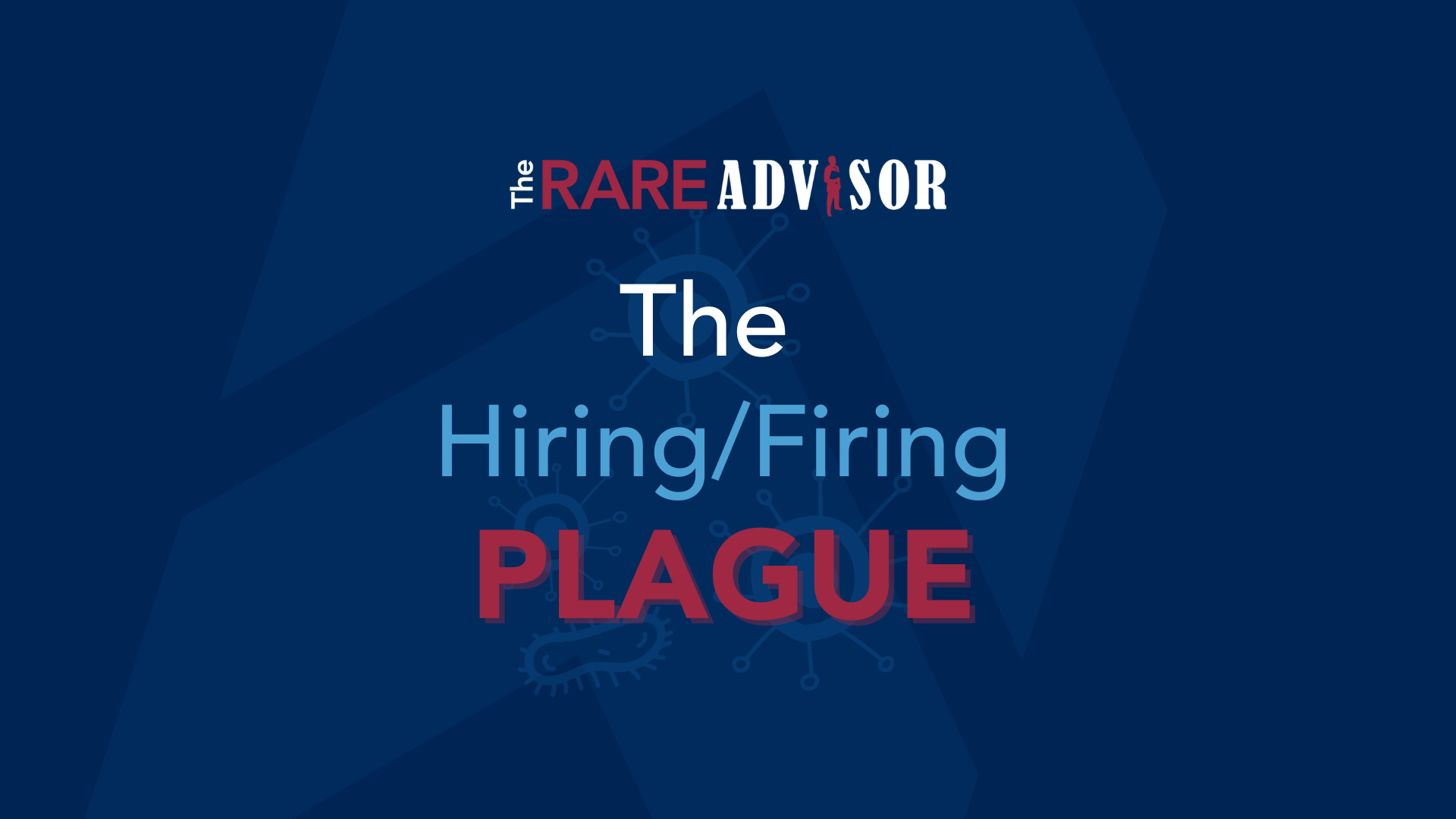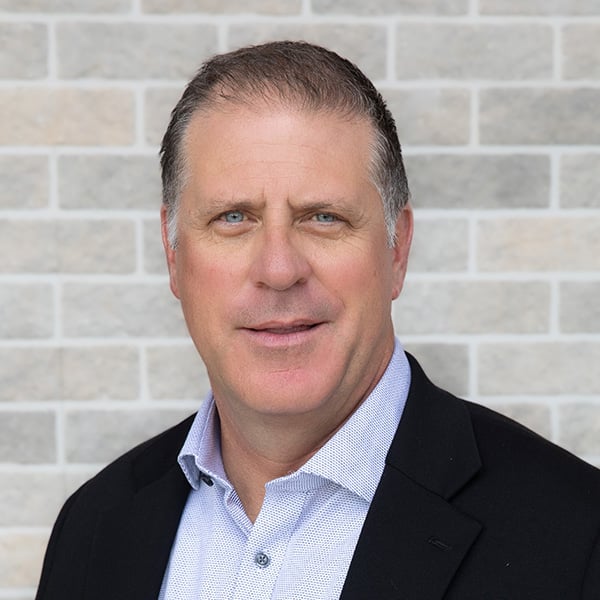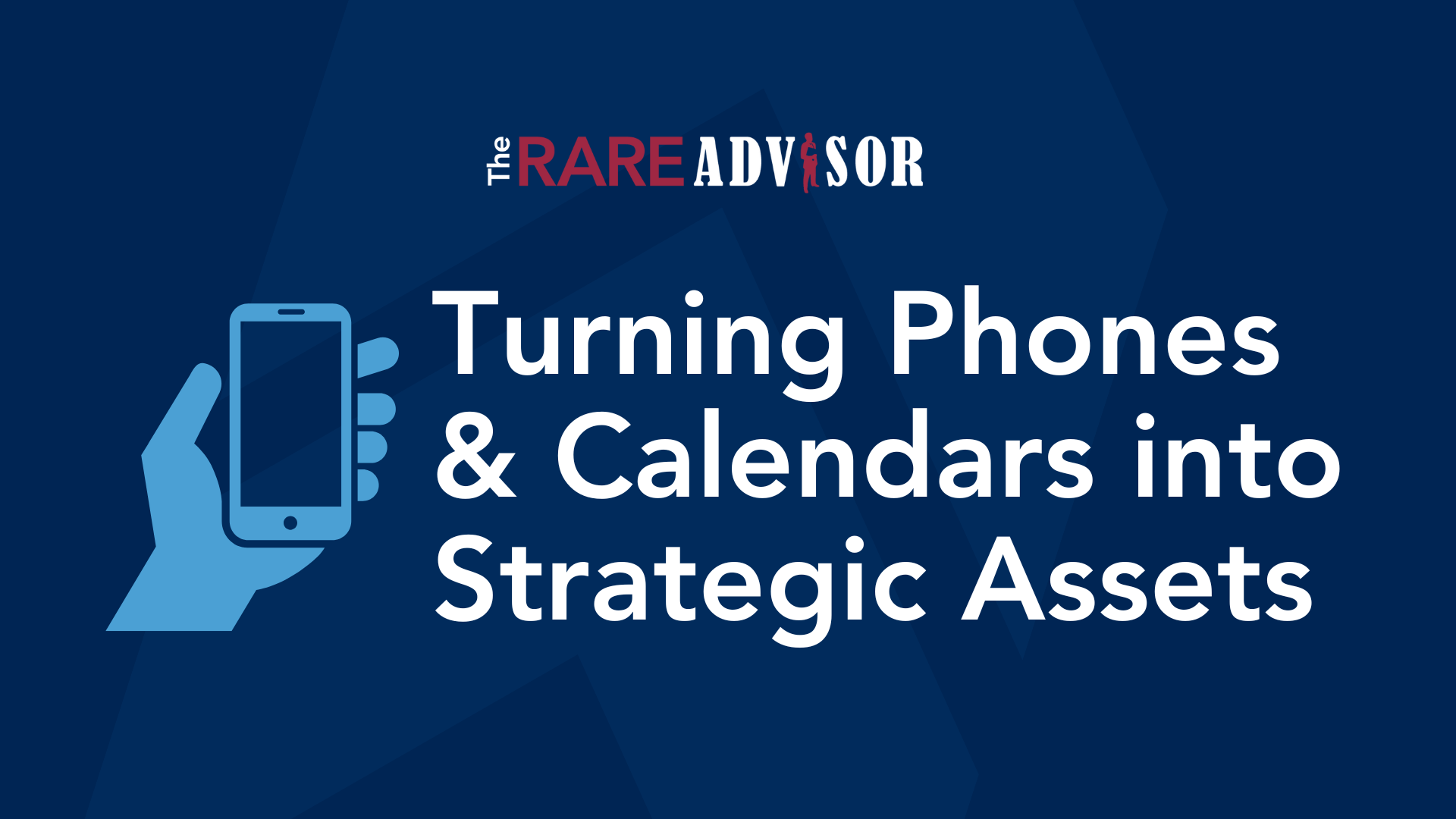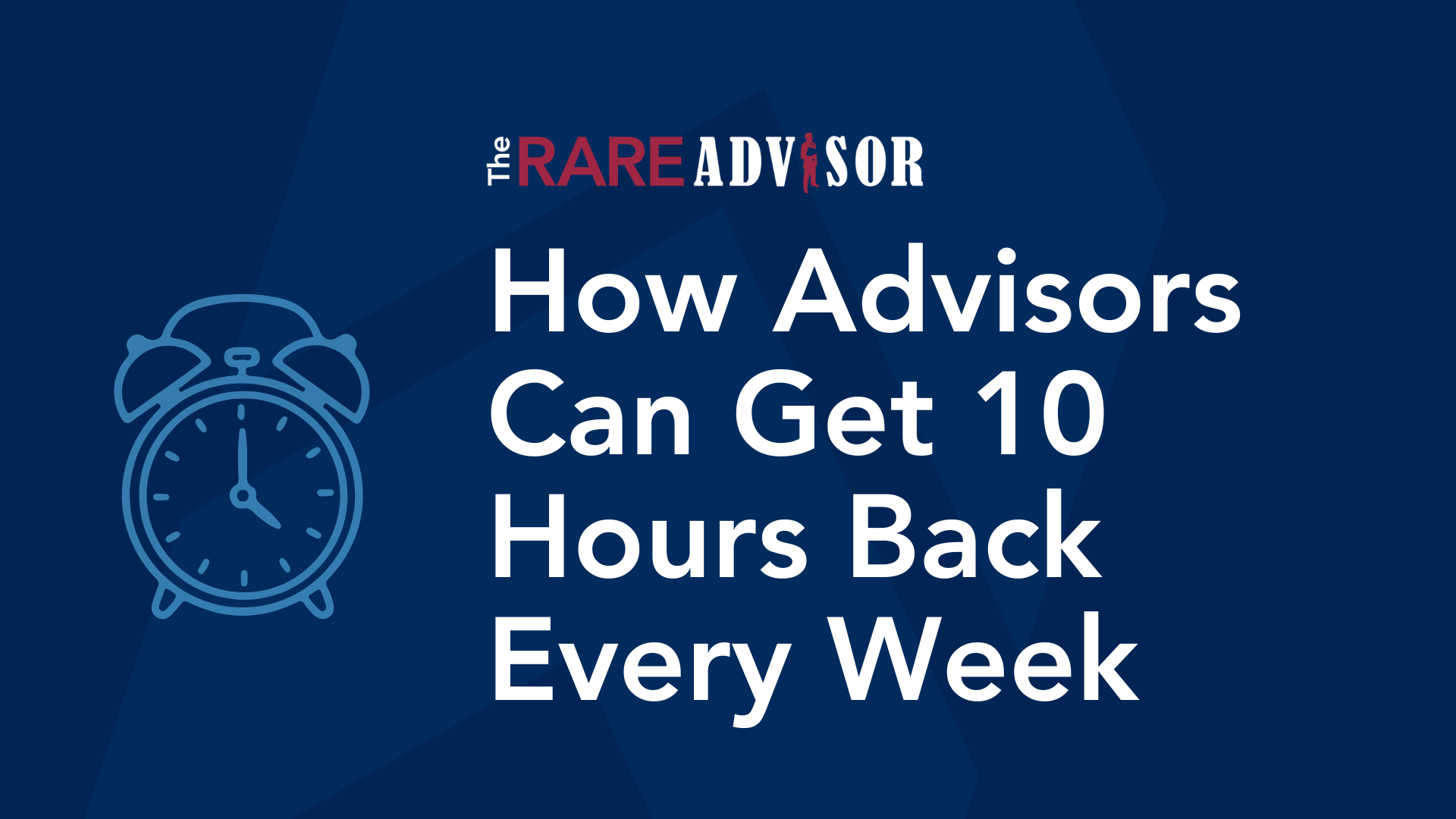The RARE Advisor: The Plague Inside Your Practice

Many financial advisory practices aren’t good at managing their people, and it can lead to a hiring and firing plague. In this episode of The RARE Advisor, we discuss how to track the economics of what it means to lose a good employee and have to replace them with someone new.
Most financial advisory practices absolutely suck at managing their people. Because when you stop and think about it, oftentimes those who are running an independent financial advisory practice (or even a captive financial advisory practice) started off as salespeople way back when. They were pretty good at it, they were able to bring accounts to the firm, and they were able to bring clients and their portfolios into the firm. And then they had to grow up, become true financial advisors, and they had to be able to take a comprehensive approach and oversight on someone's financial situation - not just sell them an account (whether it be an insurance policy or an investment of some sort). And so, out of their salesperson beginnings, they became a financial advisor somewhere along the way. Now granted, I know there's exceptions, and people come in from different angles, and different practices, and different disciplines prior to getting into this business. But, generally speaking, the overall largest percentage of people started off as salespeople, grew into being financial advisors, and then woke up one day (thanks to that entrepreneurial spirit) and found themselves being successful enough that they're actually running a practice. They have a business on their hands.
The problem is that they probably aren't wired for the operational side of things, for the HR side of things, and so on. So the problem now becomes that they either have to get good at managing people (hiring, firing, accountability, and everything that goes with that), or they have to bring in someone at a partner/executive level who they can trust to take that over for them - that can become the operations officer and ultimately have HR and related responsibilities like that reporting up through them.
You've heard me talk in the past about creating little Rainmaker pods inside of your practice, where the Rainmaker has a support team around them so they can keep specializing in what makes them great and what helps that firm grow. But then somewhere outside of that, you have to have a bigger ring that goes around the entire practice/business, and it handles all of these issues of personnel. Because again, you're terrible at it. We're terrible at it. I mean, I've become pretty good at it after doing this for over 35 years. But that's not what I love doing. And it's probably not what you love doing. But there are people out there who do, in fact, love doing it and they are in fact very good at it. So you need to get someone like that. Otherwise, you're going to be part of the average stats of what's going on out there in the financial advisory world. Now this is some data from an article at RIA Biz on February 27, 2024 titled "Plague of failed hires at strapped RIA firms 'come back to bite them,' making the process of closing bandwidth deficits falter, two new studies show." There's a hell of a title! More importantly, the data from this is from the Ensemble group. Here's the point of this discussion: 57% of advisory practices had resignations to deal with last year (existing staff wanting to leave), and another 36% let staff go because of performance problems. So either you fired them or they left on their own. There's a little bit in there on some layoffs and some other things, but that is a massive, massive percentage - way higher than the norm that you see across white collar business.
We have to get our hands around that because it's so, so very expensive to lose a good employee and have to rehire a new one and get them up to snuff. They essentially serve no good purpose for months on end until you can get them properly trained and they actually bring value to the practice. And sometimes it might take a year or more depending on what you have them doing and if they are coming in green. Now, there's advantages on how you hire them, too. If they're coming in green, you can teach them your way of doing things. And they tend to kind of just adhere to that; you don't have to unlearn things from the past. If they come to you seasoned, and they've got experience, obviously, in many cases, that's preferred. However, you might have to unteach some things too, because generally speaking, if you're running a quality organization that's growing rapidly, you're probably not doing it the same way everybody else is doing it. You know, you're not running through the typical scenario of just sitting back waiting for a referral or putting some marketing out there; you're actually working systems and processes, like we talk about here on The RARE Advisor all the time, that are baked into your business, turning it into a very repeatable process that you can take advantage of in terms of backing into your growth numbers and everything else.
So again, very important that you start to get your arms around the idea of the value that your people have. Imagine if you lost your best person right now, if you lost them tomorrow, what would that cost you in terms of productivity and production at the practice? What would it cost you in terms of having to go find a replacement? And what would it cost you in terms of getting that replacement properly trained up so that now you are just back to where you used to be before that mess started? That's how important this is.
--
The RARE Advisor is a business model supercharged by Recurring And Repeatable Events. With more than thirty years of working with and coaching successful advisors, host Mike Walters (along with other leaders in the industry), discusses what it takes to grow a successful practice. With the aim of helping financial professionals and financial advisors take their business to the next level, Mike Walters shares insights and success stories that make a real impact. Regardless of the stage of your practice, The RARE Advisor will provide thoughtful guidance, suggestions for developing systems and processes that work, and ideas for creating an authentic experience for your clients.
The RARE Advisor is also a podcast! Subscribe today via Apple Podcasts, Google Podcasts, or your preferred podcast listening service for easier on-the-go listening.
Author Info

Mike Walters is the Chief Executive Officer (CEO) of USA Financial, leading the firm since its inception in 1988. Mike is committed to...
Related Posts

Access by Design: Turning Phones and Calendars into Strategic Assets
In this episode of The RARE Advisor, host Aaron Grady and practice management consultant Allan Oehrlein continue their discussion on time allocation by exploring what comes next: operationalizing structure across the entire advisory team. They break down why the phone is the “front door” to the firm and the calendar is the “engine room,” and how elite practices use standardized phone scripts, the strategic power of the word “unavailable,” intentional scheduling rules, and team empowerment to build consistency, capacity, and trust. Aaron and Allan outline how designed access—not unlimited access—creates scalability and a stronger client experience, while reducing reactivity, burnout, and advisor bottlenecks. They also offer practical challenges advisors can implement immediately to redesign their phone and scheduling processes in ways that elevate both team culture and enterprise value.

The Psychology Behind Your CTA: Why Prospects Don’t Click “Book a Call”
In this episode of Financial Advisor Marketing Playbook, Mark Mersman breaks down the real psychological barriers that stop prospects from clicking “book a call” on an advisor’s website—and how small language and design changes can dramatically improve conversions. You’ll learn practical, compliant fixes including softer CTA language, expectation statements, empathy‑based messaging, simplified design, and reassurance techniques that lower emotional friction. If you want a website that encourages prospects to take the first step confidently, this episode delivers actionable guidance advisors can implement immediately.

How Advisors Can Get 10 Hours Back Every Week
In this episode of The RARE Advisor, host Aaron Grady and USA Financial Pareto coach and Practice Management Consultant Allan Oehrlein dive into time allocation as a core lever for advisory success. They unpack the biggest time drains—email, unsolicited calls, and open-door interruptions—and lay out a practical framework for calendar rebalancing that starts with personal time, management time, client appointments, dedicated communications windows, “work on the business” time, and high-impact growth activities. With real-world stories showing how advisors shift from reactive days to structured weeks (and even reclaim Fridays), Aaron and Allan share easy-to-implement tips: color coding calendars, scheduling buffers, daily huddles, and call/appointment protocols. If you’re ready to audit your calendar, define your ideal week, and create structure that truly liberates your practice, this conversation is your next step.

Access by Design: Turning Phones and Calendars into Strategic Assets
In this episode of The RARE Advisor, host Aaron Grady and practice management consultant Allan Oehrlein continue their discussion on time allocation by exploring what comes next: operationalizing structure across the entire advisory team. They break down why the phone is the “front door” to the firm and the calendar is the “engine room,” and how elite practices use standardized phone scripts, the strategic power of the word “unavailable,” intentional scheduling rules, and team empowerment to build consistency, capacity, and trust. Aaron and Allan outline how designed access—not unlimited access—creates scalability and a stronger client experience, while reducing reactivity, burnout, and advisor bottlenecks. They also offer practical challenges advisors can implement immediately to redesign their phone and scheduling processes in ways that elevate both team culture and enterprise value.

The Psychology Behind Your CTA: Why Prospects Don’t Click “Book a Call”
In this episode of Financial Advisor Marketing Playbook, Mark Mersman breaks down the real psychological barriers that stop prospects from clicking “book a call” on an advisor’s website—and how small language and design changes can dramatically improve conversions. You’ll learn practical, compliant fixes including softer CTA language, expectation statements, empathy‑based messaging, simplified design, and reassurance techniques that lower emotional friction. If you want a website that encourages prospects to take the first step confidently, this episode delivers actionable guidance advisors can implement immediately.

How Advisors Can Get 10 Hours Back Every Week
In this episode of The RARE Advisor, host Aaron Grady and USA Financial Pareto coach and Practice Management Consultant Allan Oehrlein dive into time allocation as a core lever for advisory success. They unpack the biggest time drains—email, unsolicited calls, and open-door interruptions—and lay out a practical framework for calendar rebalancing that starts with personal time, management time, client appointments, dedicated communications windows, “work on the business” time, and high-impact growth activities. With real-world stories showing how advisors shift from reactive days to structured weeks (and even reclaim Fridays), Aaron and Allan share easy-to-implement tips: color coding calendars, scheduling buffers, daily huddles, and call/appointment protocols. If you’re ready to audit your calendar, define your ideal week, and create structure that truly liberates your practice, this conversation is your next step.

